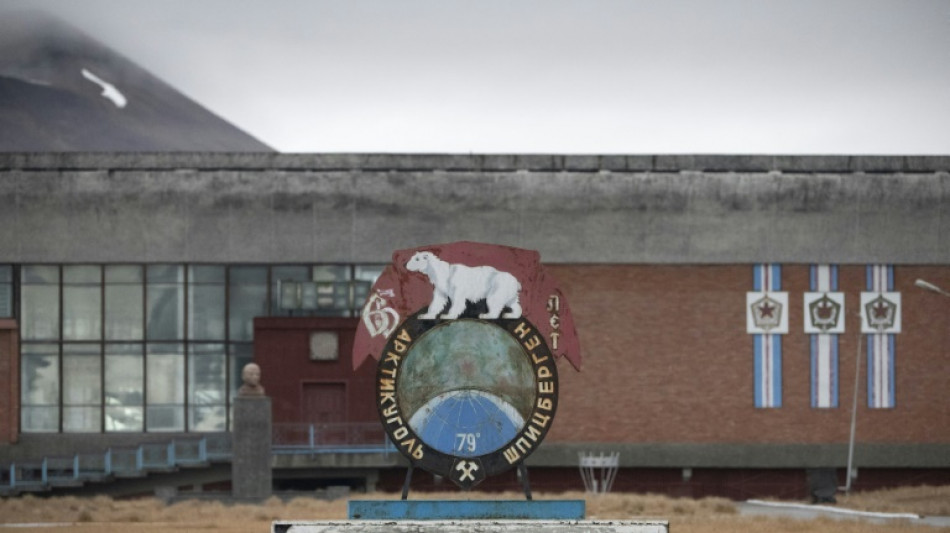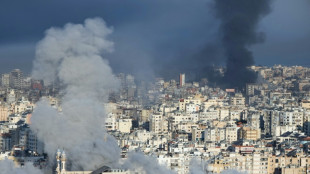
-
 Henman says Raducanu needs more physicality to rise up rankings
Henman says Raducanu needs more physicality to rise up rankings
-
France recall fit-again Jalibert to face Scotland

-
 Harry Styles fans head in one direction: to star's home village
Harry Styles fans head in one direction: to star's home village
-
Syrian jailed over stabbing at Berlin Holocaust memorial

-
 Second Iranian ship heading to Sri Lanka after submarine attack
Second Iranian ship heading to Sri Lanka after submarine attack
-
Middle East war spirals as Iran hits Kurds in Iraq

-
 Norris hungrier than ever to defend Formula One world title
Norris hungrier than ever to defend Formula One world title
-
Fatherhood, sleep, T20 World Cup final: Henry's whirlwind journey

-
 Conservative Nigerian city sees women drive rickshaw taxis
Conservative Nigerian city sees women drive rickshaw taxis
-
T20 World Cup hero Allen says New Zealand confidence high for final

-
 The silent struggle of an anti-war woman in Russia
The silent struggle of an anti-war woman in Russia
-
Iran hits Kurdish groups in Iraq as conflict widens

-
 China sets lowest growth target in decades as consumption lags
China sets lowest growth target in decades as consumption lags
-
Afghans rally against Pakistan and civilian casualties

-
 South Korea beat Philippines 3-0 to reach women's quarter-finals
South Korea beat Philippines 3-0 to reach women's quarter-finals
-
Mercedes' Russell not fazed by being tipped as pre-season favourite

-
 Australia beat Taiwan in World Baseball Classic opener
Australia beat Taiwan in World Baseball Classic opener
-
Underdogs Wales could hurt Irish after Scotland display: Popham

-
 Gilgeous-Alexander rules over Knicks again in Thunder win
Gilgeous-Alexander rules over Knicks again in Thunder win
-
Hamilton reveals sequel in the works to blockbuster 'F1: The Movie'

-
 Alonso, Stroll fear 'permanent nerve damage' from vibrating Aston Martin
Alonso, Stroll fear 'permanent nerve damage' from vibrating Aston Martin
-
China boosts military spending with eyes on US, Taiwan

-
 Seoul leads rebound across Asian stocks, oil extends gains
Seoul leads rebound across Asian stocks, oil extends gains
-
Tourism on hold as Middle East war casts uncertainty

-
 Bayern and Kane gambling with house money as Gladbach come to town
Bayern and Kane gambling with house money as Gladbach come to town
-
Turkey invests in foreign legion to deliver LA Olympics gold

-
 Galthie's France blessed with unprecedented talent: Saint-Andre
Galthie's France blessed with unprecedented talent: Saint-Andre
-
Voice coach to the stars says Aussie actors nail tricky accents

-
 Rahm rejection of DP World Tour deal 'a shame' - McIlroy
Rahm rejection of DP World Tour deal 'a shame' - McIlroy
-
Israel keeps up Lebanon strikes as ground forces advance

-
 China prioritises energy and diplomacy over Iran support
China prioritises energy and diplomacy over Iran support
-
Canada PM Carney says can't rule out military participation in Iran war

-
 Verstappen says new Red Bull car gave him 'goosebumps'
Verstappen says new Red Bull car gave him 'goosebumps'
-
Swiss to vote on creating giant 'climate fund'

-
 Israel, Iran launch fresh attacks as war spreads
Israel, Iran launch fresh attacks as war spreads
-
Google to open German centre for 'AI development'

-
 Winter Paralympics to start with icy blast as Ukraine lead ceremony boycott
Winter Paralympics to start with icy blast as Ukraine lead ceremony boycott
-
Sci-fi without AI: Oscar nominated 'Arco' director prefers human touch

-
 Ex-guerrillas battle low support in Colombia election
Ex-guerrillas battle low support in Colombia election
-
'She's coming back': Djokovic predicts Serena return

-
 Hamilton vows 'no holding back' in his 20th Formula One season
Hamilton vows 'no holding back' in his 20th Formula One season
-
Two-thirds of Cuba, including Havana, hit by blackout

-
 US sinks Iranian warship off Sri Lanka as war spreads
US sinks Iranian warship off Sri Lanka as war spreads
-
ReadyCode Launches ReadyM, a Creative Multiplayer Platform Bringing Community-Driven Gameplay to the World’s Most Beloved Single-Player Games

-
 Physical Gold IRA: IRA Gold Investment Guide Released for 2026
Physical Gold IRA: IRA Gold Investment Guide Released for 2026
-
InterContinental Hotels Group PLC Announces Transaction in Own Shares - March 05

-
 After oil, US moves to secure access to Venezuelan minerals
After oil, US moves to secure access to Venezuelan minerals
-
Arteta hits back at Brighton criticism after Arsenal boost title bid

-
 Carrick says 'defeat hurts' after first loss as Man Utd boss
Carrick says 'defeat hurts' after first loss as Man Utd boss
-
Ecuador expels Cuba envoy, rest of mission


Soviet-era outpost helps Russia retain a foot in Norwegian Arctic
With its bust of Lenin, cultural centre and KGB offices, the abandoned Soviet outpost of Pyramiden may seem like a time-warped Arctic oddity but is valued by Moscow as it vies for clout in the warming region.
Russia has made the development of the Arctic a strategic priority, pinning its hopes for supremacy in the region on a fleet of giant nuclear-powered icebreakers.
The tiny ex-mining settlement of Pyramiden, meanwhile, helps Moscow retain a footprint in Norway's Svalbard archipelago, high above the Arctic Circle.
Norway -- a NATO member -- was afforded sovereignty of Svalbard under the 1920 Treaty of Paris but all signatories, which included the Soviet Union, were given equal rights to explore and exploit its mineral resources.
Russia began coal mining in Barentsburg, another settlement in the archipelago, in 1931, and later in Pyramiden, where the Russian community grew to up to 1,200 between 1960 and 1980.
Being sent to Pyramiden was considered a plum job for a miner, a tour guide told AFP.
On the Western side of the Iron Curtain, it provided a window on Soviet power, culture and self-sufficiency, from pig breeding to its 300-seat cinema, swimming pool, gymnasium and hospital.
But as the Soviet Union fell apart, while mining continued in Barentsburg, it stopped in Pyramiden in 1998 as its performance dwindled, and the miners left.
- 'Interesting future?' -
At first sight, Pyramiden now looks like a ghost town.
No one lives there apart from a handful of Russians who run a hotel -- and the polar bears with whom visitors risk coming face-to-face.
But even though the mining community has long gone, nothing has been destroyed, an AFP photographer saw, and its vestiges offer a glimpse into the heyday of the Soviet era.
Buildings built to last are just weather-beaten from decades of harsh winters.
The rails of the funicular on which the trailers of coal were hauled down are still visible on the pyramid-shaped mountain, which gave the village its name.
Inside the buildings, it's as if time has stood still, with the occupants having left suddenly but expected back at any moment.
Phials of ore are lined up in display cabinets in administrative offices, where calendars still hang on the walls, while the KGB premises have reinforced doors and miners' files spread out on the tables.
Classrooms are adorned with children's drawings and the teacher's cup is still there.
But Yury Ugryumov, of the Arctic and Antarctic Research Institute based in Saint Petersburg, said Pyramiden was not just a place of historical memory.
"This village is not abandoned, it has been temporarily put on hold," he told AFP.
Russia is currently developing tourism and research in Pyramiden, drawing glaciologists, hydrologists and marine experts there for scientific work.
"There's hopes for an interesting future here," said Ugryumov, who heads the Russian Arctic expedition to the archipelago.
M.A.Colin--AMWN